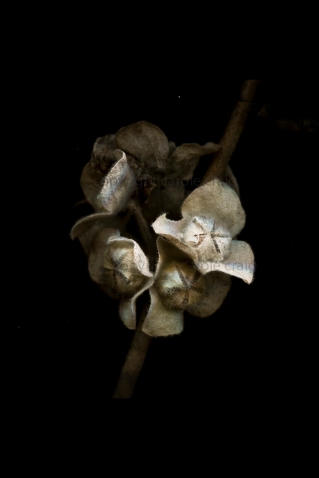
Stones back garden 885 Clayton Street (c) Carole Craig
“That’s why I came here bringing
nothing. There was nothing to do but leave things.” Ken Smith — Possessions
The eyrie that was my mother’s room has been visited by disaster – drawers open, clothes scattered, papers sliding to the floor. It is as though she died in a cataclysm, not peacefully, in bed, sung to, cared for, loved. I should have foreseen that death, even quiet death, is catastrophic, cyclonic uprooting and displacing the familiar and the known.
I travel through like a rescue team sifting debris. Triage: what from this life can be saved? Not the carefully coiled lengths of string, the dry ballpoint pens, the bits of paper cut into squares for notes no larger than ten words, the calendar pages so handy for making envelops decorated with the sticker that admonishes the receiver to “Save Trees!”
Grey areas are harder. Who will want the pile of unused Christmas cards, a tape recorder, two plastic kites, the tangled and never worn strings of beads, the fifty, at least, tee shirts, stamped with organizations joined, festivals attended, trips taken, politics engaged?
“I grew up in the depression,” my mother said. Waste not want not.
There are things less easy to explain: Christmas lists beginning in 1954 and going on for every year thereafter, the presents given and the cost, the receipts in an envelopes attached with decaying paper clips; a box with a folder for every significant illness endured; monthly outgoings 1954 to 1965 and for Mexico in 1945; carefully inscribed lists of cards received; the complete contacts for a tour of England 1980; twenty unused covers for the San Francisco Folk Music Club Directory, 1971; the minutes from a PTA meeting, 1952.
Why? They seem a burden. If she didn’t keep the evidence would the life itself disappear?
On the ground floor, behind the hundred year old leaded glass, among the clay figures from China and the miniature Mexican children’s toys, are open necked bottles that in the 1960’s and 70’s held cheap wine. Did they hold memories for her?
In the basement are drawers full of shells, in the garden jars of stones. The jars, metal lids rusted tight, sit on wire shelves hung on the fence. There are more jars of stones under the sink that serves as a potting table, so green that their contents have disappeared; other jars sit precariously on the wooden cross beam of the fence. The stones in the jars are grey, white, red, brown smooth, rough, broken, whole; there are abalone shells, fracturing rainbows, whole sand dollars and the plain shells of clams, oysters, and mussels. Nothing is valuable or rare or even arrestingly beautiful.
The picture of my mother on my wall in Dublin is of her sitting on a rock at Stinson Beach, palm open, head down, looking for pretty pebbles. The stones and shells I understand.
In the days before she died, my mother’s time was filled with dreams, knotted memory and fear. She was on a cliff, afraid of falling. Once when waking, she was puzzled. There were people at the bottom. She was worried about them. We had to discover who they were. One was once dear but from the long past, the other a friend who had disappointed her. “I still feel responsible for them,” she said.
I think this is the heart of the stones and shells. She had gathered the stones collected the shells, touched them and altered their course. In her moral universe it would have been wrong to discard them because they had become inconvenient or dusty and took up too much space or because she had too many. She was responsible for them. A moral imperative: you must take care of what you touch.
Several years ago, tired of so many, I made her a rock garden with some of them. It was not a success and now I am planting flowers there. The stones and shells have become mixed with earth. To find them all, I have to sift the soil and it takes a long time. Carefully, I put stones and shells in empty pots until I find them the right resting place — my mother’s daughter after all.
Possessions — Ken Smith
They spent my life plotting against me.
With nothing to do but cultivate them,
but to be there, aligning their shadows,
they were planning to undo me,
wanting to own me completely.
They have marched through the rooms,
their presences litter the surfaces
close at my elbow calling attention.
When I sleep they being with their meetings,
when I leave home they hold a convention.
The minutes, the notes, the chairman
calls order, the lamps signal aye. When I die
they’ll start in on another,
easy at first learning his ways.
Now they’re gone, taken from me, good luck.
IIf I kept them I’d never be free. I’d die
and have to begin picking everything up,
all the waste paper, baby teeth, beards,
I’d have to go back for the fingernails.
So I’m shut of them, all the gossip and malice
the tables, the chairs with their jokes on me.
All the prying, the scanals. The telephone
stored it all up, the books lied to me.
Thats why I came here, bringing
nothing. There was nothing to do but leave things.
I saved only a few smells of tobacco
and blankets, a dream of a waterfall,
a length of ribbon, my name, my number,
the holes in my suitcase.
Ken Smith
37.765432
-122.447990









